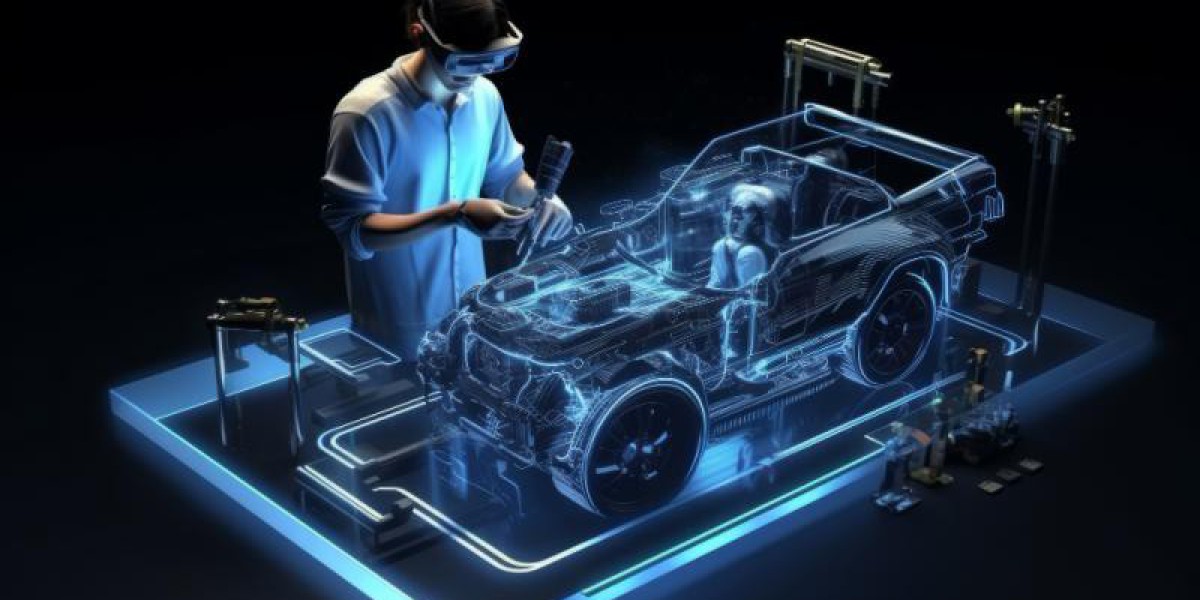Introduction
In today's rapidly evolving automotive industry, technology plays a pivotal role in driving innovation and efficiency. From advanced driver assistance systems (ADAS) to autonomous vehicles, automotive IT solutions have become indispensable for manufacturers, suppliers, and service providers alike. However, with the multitude of options available, selecting the right IT solutions can be a daunting task. This article aims to provide insights into navigating this complex landscape, focusing on the key considerations from cost-effectiveness to cutting-edge features, with a particular emphasis on the emerging trend of 5G automotive technology.
Understanding Automotive IT Solutions
Automotive IT solutions encompass a wide array of technologies and systems designed to enhance various aspects of vehicle manufacturing, operation, and maintenance. These solutions can range from enterprise resource planning (ERP) software for streamlining production processes to telematics systems for fleet management and connectivity features for enhancing the driving experience.
When evaluating automotive IT solutions, it's essential to consider the specific needs and objectives of your business. Whether you're a large automotive manufacturer looking to optimize production efficiency or a small dealership seeking to improve customer engagement, the right IT solution can make a significant difference in achieving your goals.
Cost Considerations
Cost is often a primary concern for businesses when selecting IT solutions, especially in the highly competitive automotive industry. While investing in cutting-edge technology can yield long-term benefits, it's essential to strike a balance between functionality and affordability.
When assessing the cost of automotive IT solutions, consider not only the upfront expenses but also the total cost of ownership over the solution's lifecycle. This includes factors such as implementation costs, ongoing maintenance fees, and potential scalability options.
Furthermore, evaluate the return on investment (ROI) that each IT solution offers. Will it help reduce operational costs, improve productivity, or enhance customer satisfaction? Conducting a thorough cost-benefit analysis can help ensure that you're making a financially sound decision.
Feature Requirements
In addition to cost considerations, the features and capabilities of automotive IT solutions play a crucial role in their effectiveness. Depending on your business requirements, you may prioritize certain features over others.
For automotive manufacturers, features such as real-time production monitoring, predictive maintenance, and quality control are essential for optimizing efficiency and ensuring product quality. On the other hand, dealerships may focus on customer relationship management (CRM) systems, inventory management, and digital marketing tools to enhance sales and service operations.
When evaluating feature requirements, consider both current needs and future scalability. Choose IT solutions that offer flexibility and customization options to adapt to evolving business demands.
Emerging Trends: 5G Automotive Technology
One of the most significant trends shaping the automotive industry is the integration of 5G technology. 5G promises to revolutionize the way vehicles communicate with each other, infrastructure, and the surrounding environment, enabling a wide range of new applications and services.
In the context of automotive IT solutions, 5G offers several key benefits, including:
Enhanced Connectivity: With its ultra-low latency and high bandwidth capabilities, 5G enables seamless connectivity between vehicles, enabling advanced safety features such as cooperative collision avoidance and autonomous driving.
Vehicle-to-Everything (V2X) Communication: 5G facilitates V2X communication, allowing vehicles to exchange information with other vehicles, pedestrians, and infrastructure in real-time. This enables proactive safety measures and improves traffic efficiency.
Over-the-Air (OTA) Updates: 5G enables faster and more reliable OTA software updates, allowing manufacturers to remotely deploy patches, upgrades, and new features to vehicles in the field. This improves cybersecurity and reduces maintenance costs.
Edge Computing: By leveraging edge computing capabilities enabled by 5G networks, automotive IT solutions can process data closer to the source, reducing latency and enabling faster response times for critical applications such as autonomous driving and predictive maintenance.
When selecting automotive IT solutions, businesses should consider the compatibility and integration with 5G technology. Look for solutions that are designed to leverage 5G connectivity and take advantage of its unique capabilities to drive innovation and competitive advantage.
Case Studies: Implementing Automotive IT Solutions
To illustrate the importance of selecting the right automotive IT solutions, let's consider two case studies:
Case Study 1: Automotive Manufacturer
A leading automotive manufacturer is looking to improve production efficiency and quality control across its manufacturing facilities. After conducting a comprehensive evaluation, the company decides to implement an integrated ERP system with real-time monitoring and analytics capabilities. This allows the manufacturer to optimize production processes, identify bottlenecks, and ensure compliance with quality standards. Additionally, the ERP system is designed to integrate seamlessly with 5G-enabled devices and sensors, enabling future scalability and connectivity.
Case Study 2: Dealership Network
A network of automotive dealerships is seeking to enhance customer engagement and streamline sales and service operations. After evaluating various CRM and digital marketing solutions, the dealership network selects a comprehensive platform that offers personalized customer insights, targeted marketing campaigns, and seamless integration with inventory management systems. Furthermore, the solution leverages 5G connectivity to enable enhanced in-vehicle experiences and remote diagnostic capabilities, improving customer satisfaction and loyalty.
Conclusion
In conclusion, selecting the right automotive IT solutions is crucial for driving business success in today's competitive automotive industry. By considering factors such as cost-effectiveness, feature requirements, and compatibility with emerging technologies like 5G, businesses can make informed decisions that align with their objectives and priorities. Whether you're a manufacturer, supplier, or service provider, investing in the right IT solutions can help you stay ahead of the curve and unlock new opportunities for innovation and growth.



